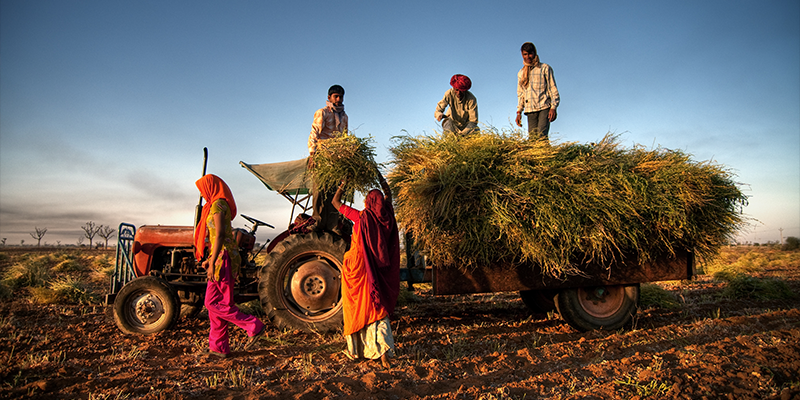About 95.7 percent of women in rural areas expressed their optimism in investing in the agriculture sector, a report highlighted on Monday.
According to an internal survey by agritech startup , financial independence and respect in society were the primary motivators for women to continue their investment in the sector.
The survey — conducted under Nurture.farm’s flagship programme Women in Agriculture (WiA) — focused on understanding factors that sustain women in agriculture and how income from agriculture helps them grow professionally and personally.
The programme also looked at women's contributions — from diverse educational and socioeconomic backgrounds — to the agritech sector.

Commenting on the survey, Dhruv Sawhney, Business Head and COO, Nurture.farm, said, “At a time when we see rural population mass migrate to cities in search of gig-work opportunities, I am happy to see the results, wherein 97 percent women associated with us want to continue to be a part of the agri-ecosystem."
He added, "It shows that our WiA programme is a success. Our nurture.academy team — well-positioned to examine and improve diversity hiring practices in agriculture through skill training and career development — is also doing remarkable work at educating them for job-related responsibilities.”
Established in 2020, Nurture.farm is an open digital agritech platform that provides agricultural solutions such as remote sensing, farm mechanisms, online marketplaces, traceability, and market linkages.
The survey also showed that the family played a vital role while managing the income. About 85.7 percent of rural women make income-related decisions only after discussing with their families as compared to 43 percent of urban respondents.
Moreover, 90 percent of rural women spend the majority of their income to fulfil family needs.
Many women, especially 80 percent of those in the rural areas, did not have any health or life insurance as opposed to 40.5 percent of urban respondents.
In fact, financial literacy was found to be scattered, as only 34.3 percent of rural women did not have any savings.
On the other hand, 55 percent of them used digital modes of payment, while all urban respondents had access to them.
Edited by Suman Singh


